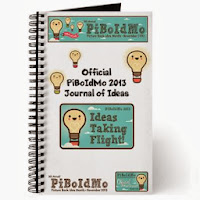Mentor Text Resources & a Winner!

Thank you to all the participants in the Mentor Text Challenge. Remember mentor texts are an excellent defense against writer's block, lack of inspiration, and all sorts of writer's ailments. We have a challenge winner (selected by Random.org): Marcie! She has won a 2013 PiBoIdMo Journal and the warm touchy feeling that comes with knowing $3 goes to support Reading is Fundamental ! Marcie grabbed the book A Storm Called Katrina and selected its first person narration style to apply to a WIP. (Marcie - If I can't find you, email me at laurimeyers (at) gmail.com!) If you've been following along on the Mentor Text Posts, you deserve a prize for your commitment to studying craft. So just for you... Excellent Resources for KidLit Nerds RenLearn Type in the title of a book and get its book level, word count, AR points, etc. Scholastic Type in the title of a book and get its grade interest level, grade reading level, and theme/subject area. I


